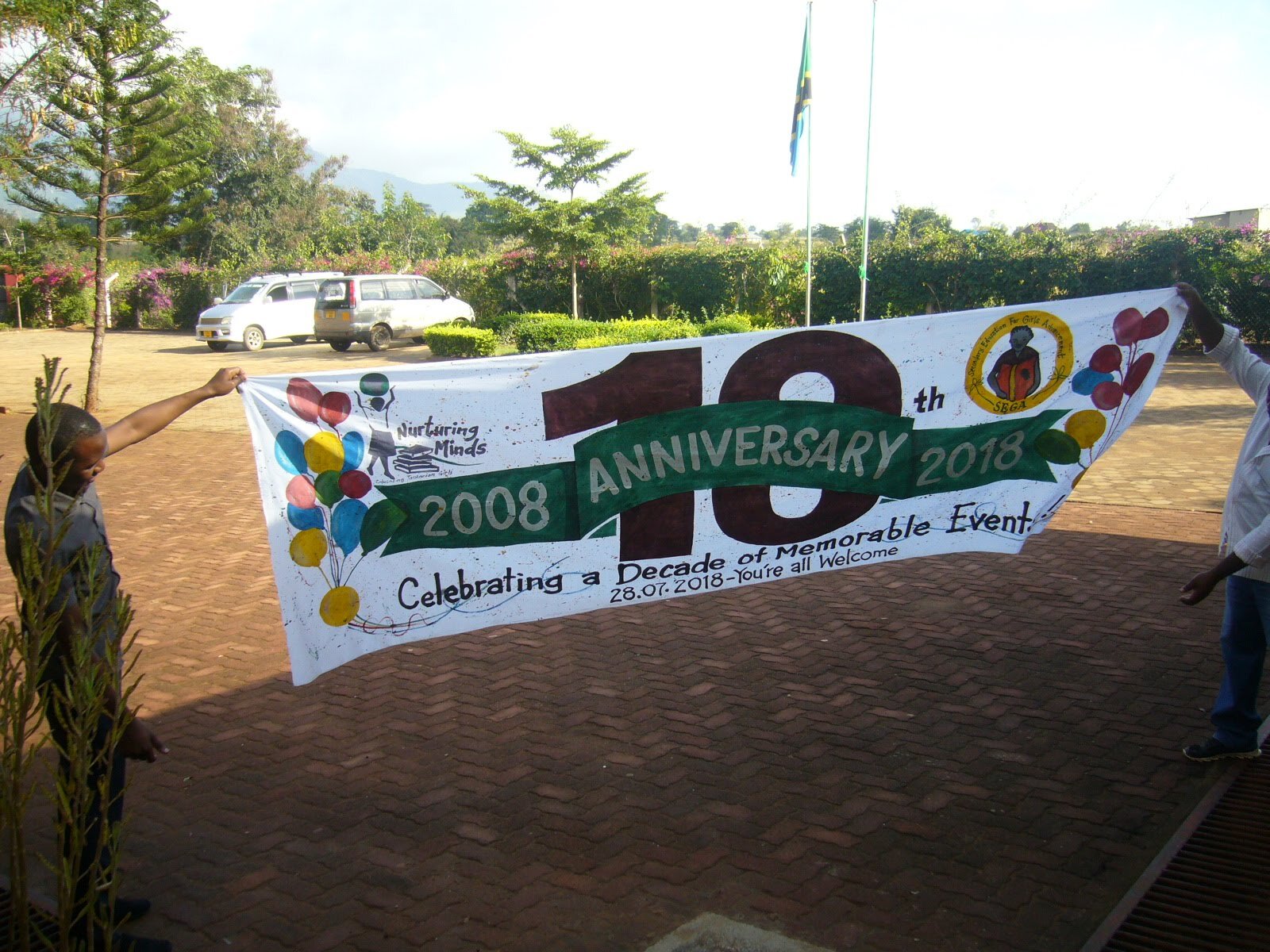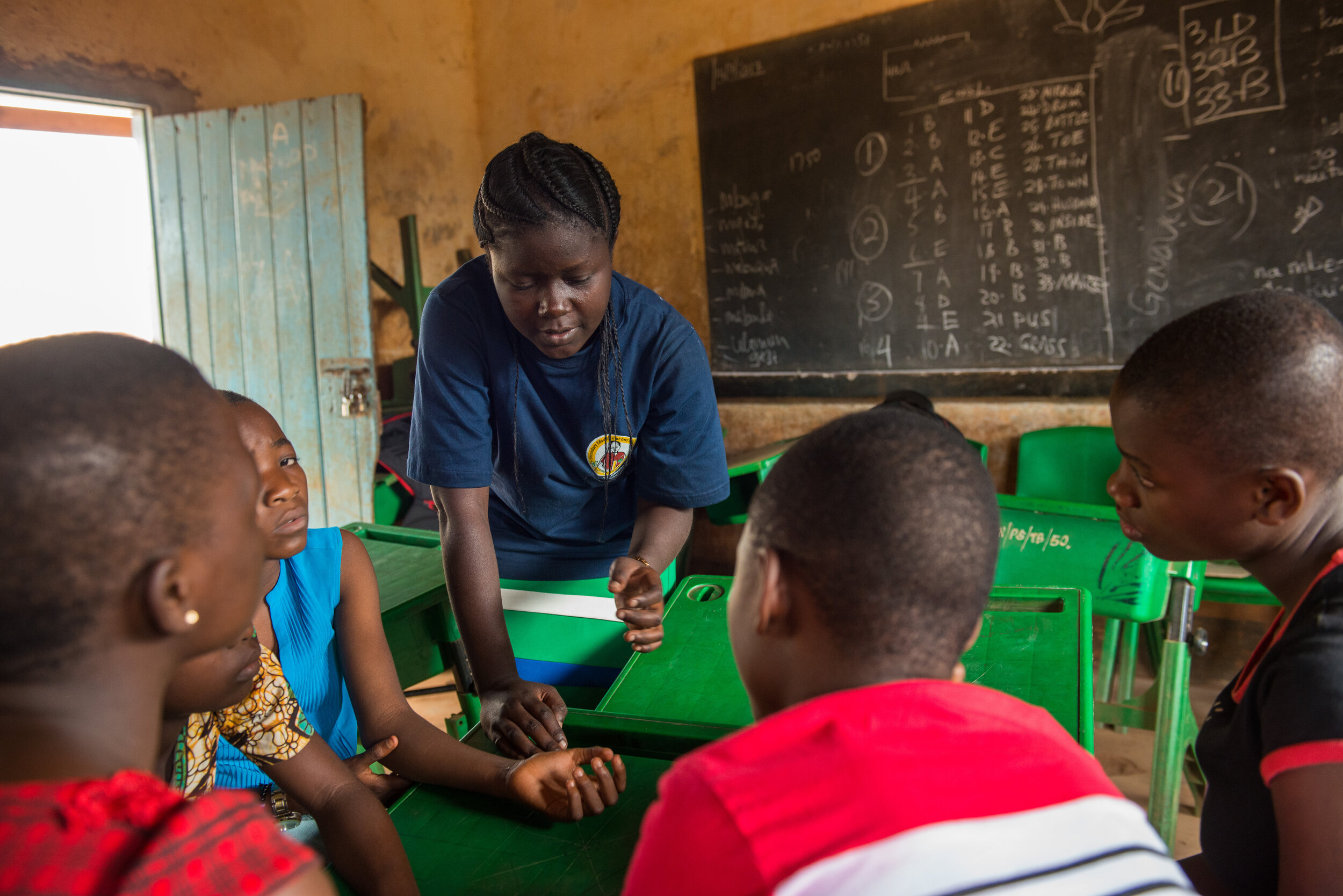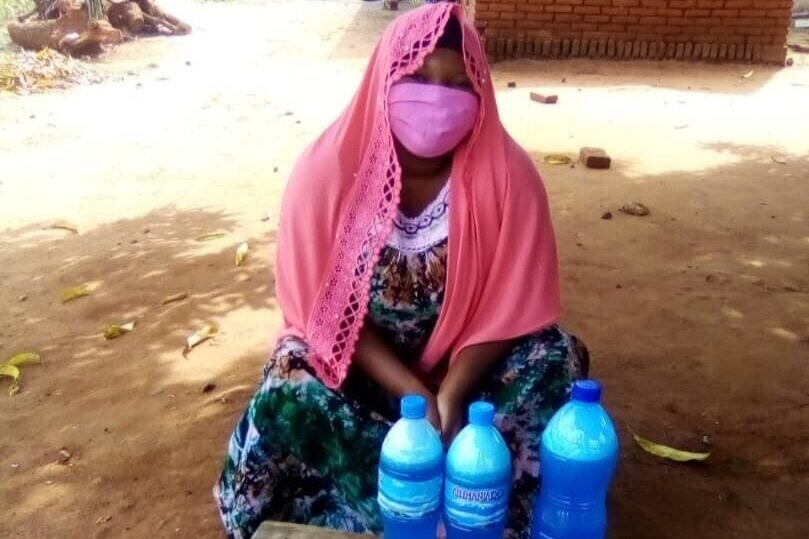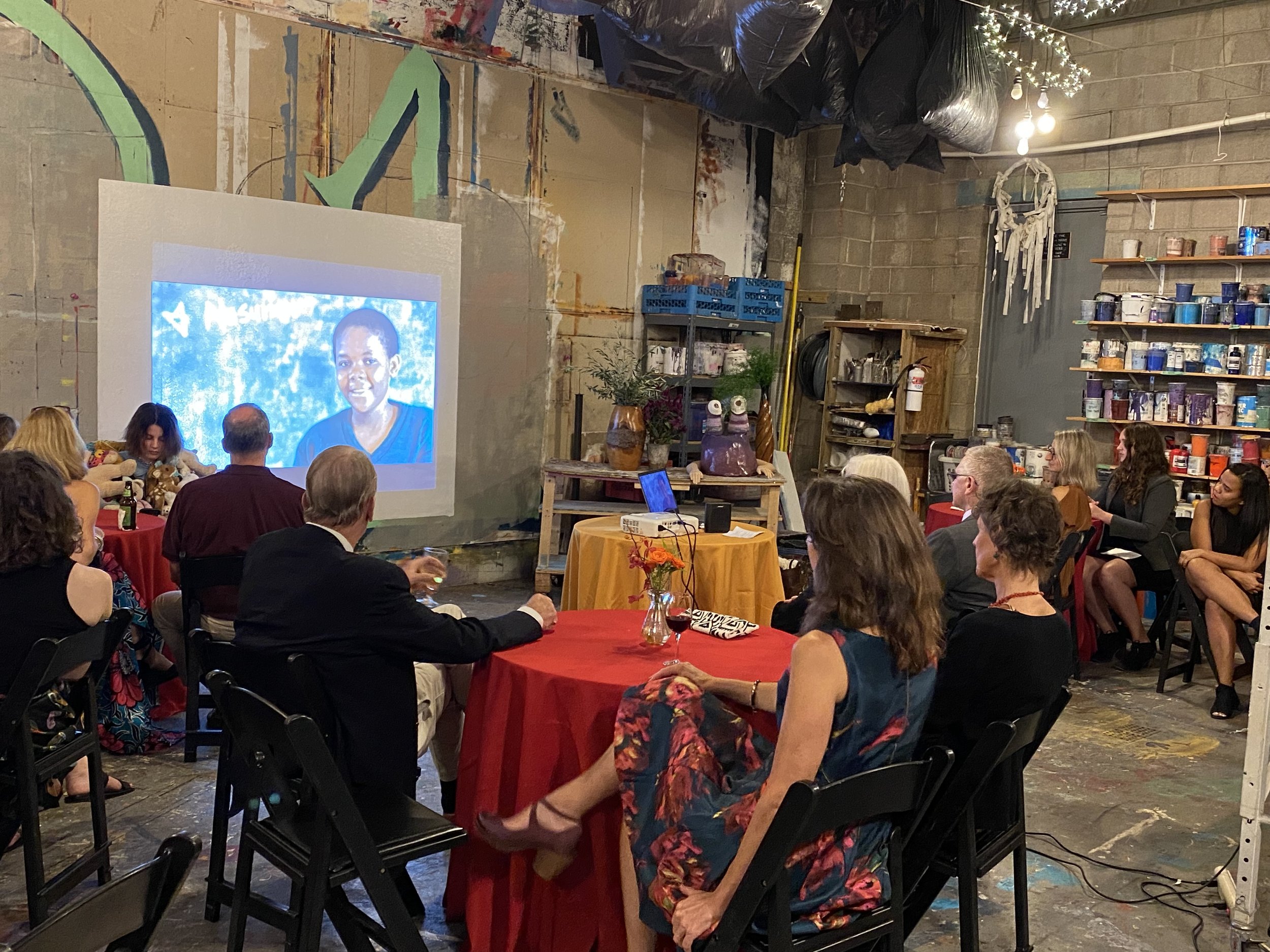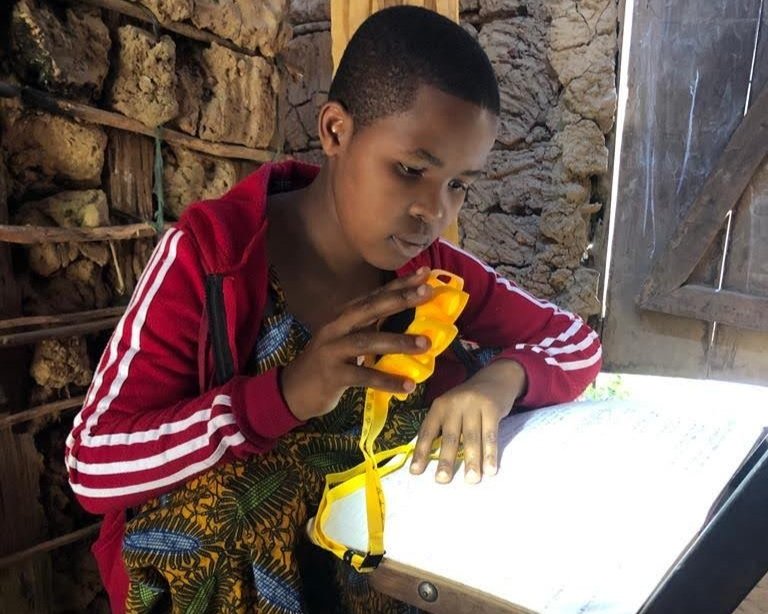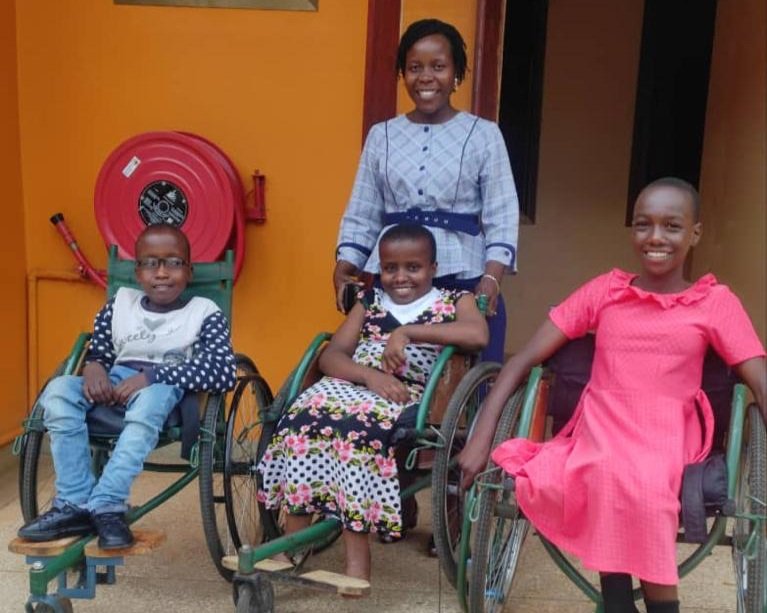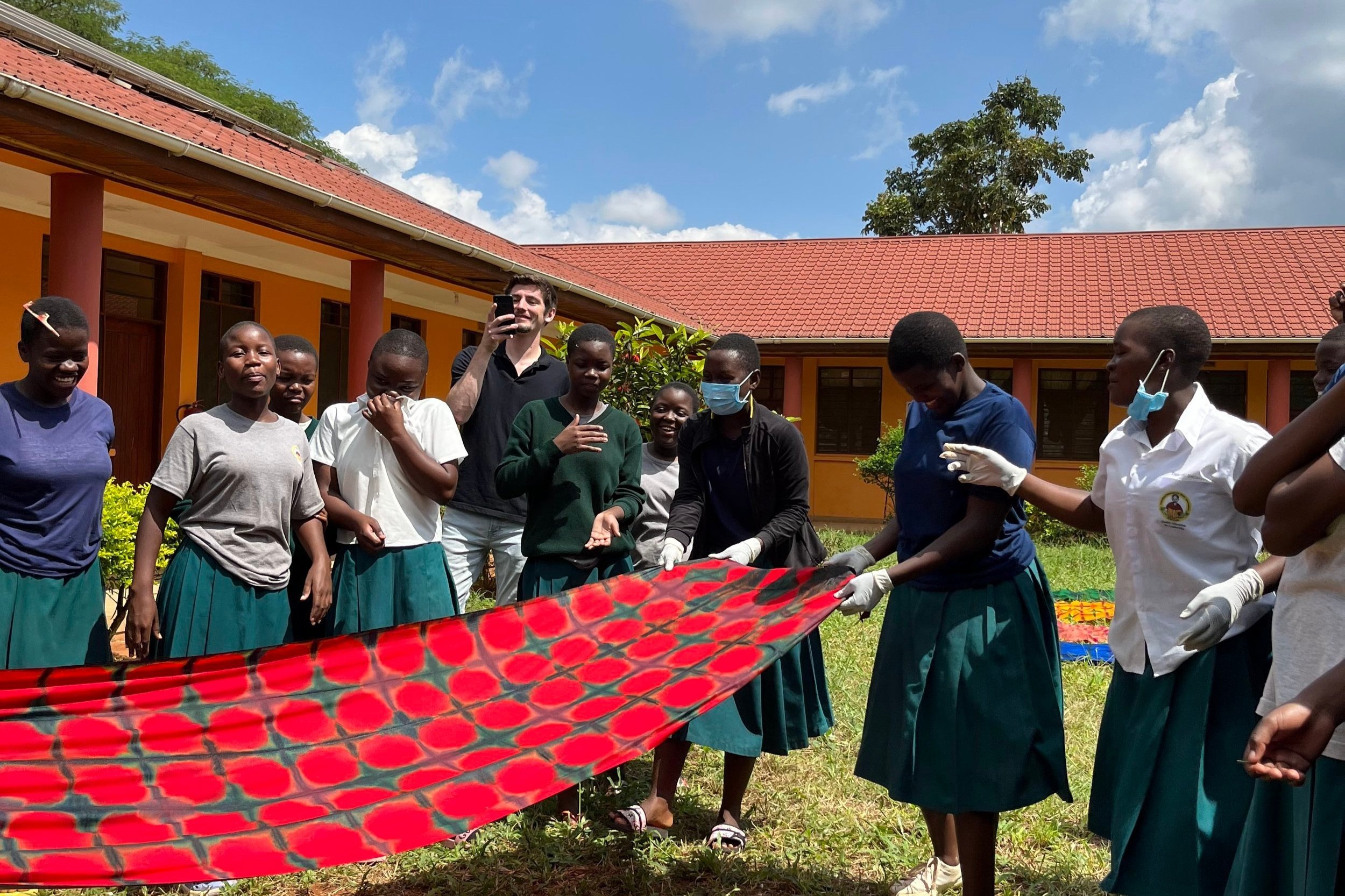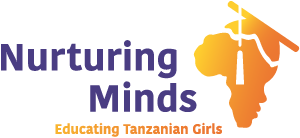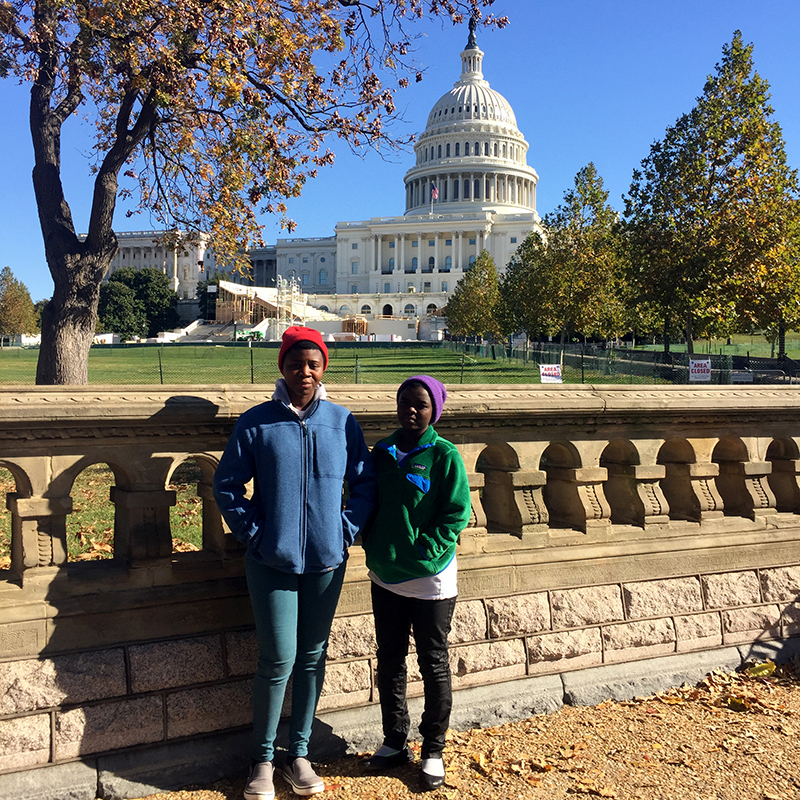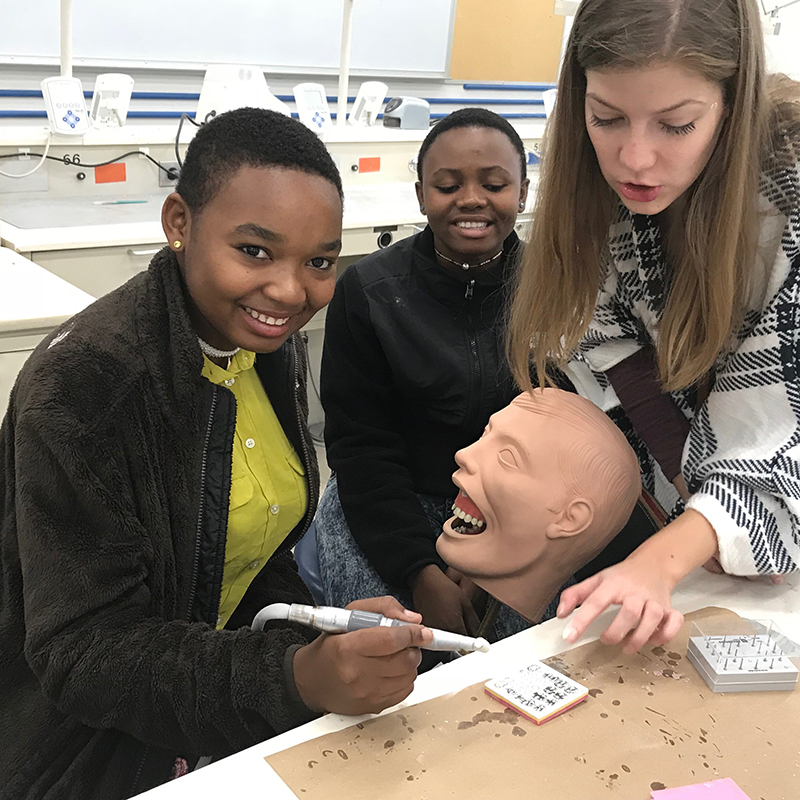
287 Students
Educated at the SEGA Girls’ School every academic year.
182 graduates
Enrolled in continuing education supported by the Continuing Education Scholarship Program.
97% of graduates
Go on to continuing education.
1,873 GIRLS
Reached in 29 communities through the Modern Girl Community Outreach Program

What Does Success Look Like?
Transformation through Education: Elina’s Story
Elina grew up in Morogoro, not far from the SEGA Girls’ School. When she was in primary school, her parents got divorced, and her mother struggled to support Elina, her older sister, and her younger brother, who has a serious health condition. Her mom was farming near the SEGA campus and asked one of the Maasai guards what this beautiful school was. When he shared it was for girls from poor backgrounds, she could hardly believe it. She brought Elina to the front gate the next day. Elina formally applied, and was admitted to SEGA!She joined the very first English Fluency Program as a Pre-Form student. She was incredibly shy and scared to speak in front of others. She said, “I just felt inferior and had no confidence.” She felt she did not belong anywhere, and although she was strong in math, she struggled with English. However, she was determined to succeed. With lots of effort, the English Fluency Program, many supportive teachers, and reading a lot of books, Elina ultimately won the best English award at her SEGA graduation!
After Elina completed her ordinary level secondary education at SEGA, she became a UNITE Scholar and received a scholarship for her advanced level secondary education in Mtwara, Tanzania. While at A-levels, she was selected to attend a STEM camp in Tanga run by Project Inspire and subsequently was selected as a Yale Young African Scholar, which supports bright Africans wishing to pursue university degrees. During this time, she participated in a Digital Challenge hosted by Apps and Girls and was part of the winning team, which designed a website called “Green Menses” to promote the use of reusable sanitary pads.
Elina’s energy and drive continues to amaze everyone as she takes advantage of every opportunity she can. Just last summer, after completing her A-level degree, she was accepted as a Yale Young Global Scholar, took a short course with United World Colleges, did an internship with Project Inspire, and became a Youth Advisor for UNITE. She visited the U.S. in October of 2022 and had the honor of participating in a luncheon with Michelle Obama through the Girls Opportunity Alliance of the Obama Foundation. She returned to TZ and began her BS with the University of Dodoma in Cyber Security and Digital Forensics Engineering! In April, she was selected to participate in a STEM program with WAAW (Working to Advance African Women in STEM) in South Africa. She volunteered at SEGA for the July 2023 STEM Adventures at SEGA program alongside 7 other SEGA graduates pursuing STEM-related degrees. Elina shared that transitioning to university was challenging, but she is working hard and has lots of support through the university. Her program and field is highly dominated by males with only 20 females out of 140 in the program. It’s clear that this young woman will overcome any challenges she faces and is ready to make a huge impact on the world.
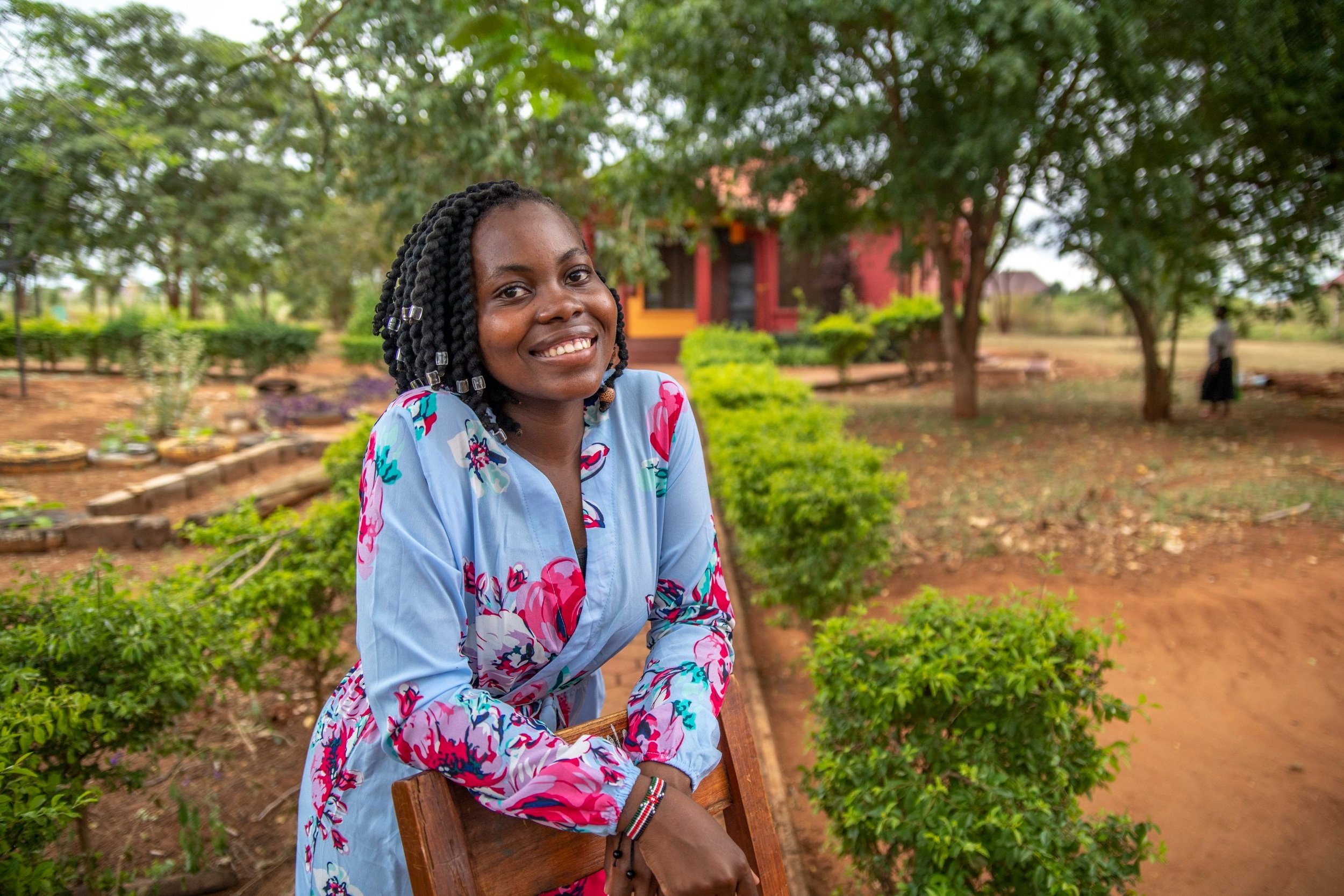
Educating the Future of Tanzania: Evelyne’s Story
Evelyne experienced many challenges during her childhood. When she learned about SEGA Girls’ Secondary School from a local ambassador in 2011, her life began to change. Becoming a SEGA student set Evelyne on the path for success. She was one of the few students in her class who pursued the science track, and she excelled academically. She also participated in extracurricular activities at SEGA, including the Business Club team, where she learned the skills needed to run a small business. She graduated in 2015, empowered and excited for the next steps in her educational journey.After graduating from SEGA, Evelyne enrolled in Kandoto Girls High School, where she studied Physics, Chemistry, and Biology. After graduation, she enrolled at Bugando Catholic University of Health and Allied Sciences and pursued a Bachelor's degree in Medical Laboratory Sciences. At the start of her university journey, Evelyne faced challenges. She learned how to balance her school work with her social life and how to cooperate and interact with different people, which are skills that will serve her well for life. Evelyne graduated in October 2021 and is now a Medical Laboratory Scientist. She is currently interning with Kilimanjaro Christian Medical Center.
Evelyne expresses her heartfelt gratitude and appreciation to SEGA and Nurturing Minds for their work to educate and empower Tanzanian girls and young women.
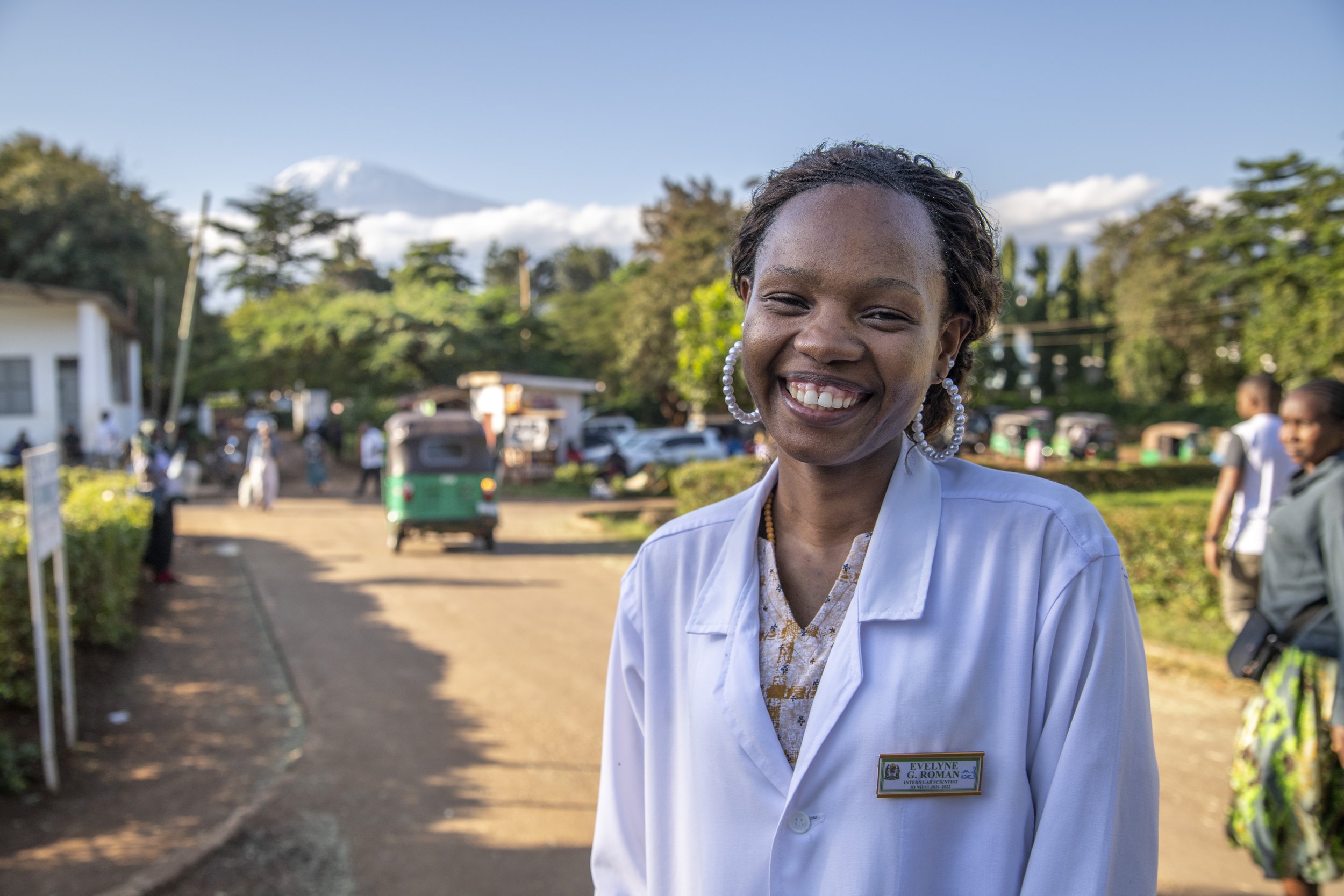
Monitoring and Evaluation
SEGA monitors the overall success and progress of the school by tracking the accomplishments of its students, which are key indicators of the school's success at all levels. Over the long-term, SEGA will measure four key program indicators of overall impact of its work to improve the quality of life of the SEGA graduates.
Targets:
90% of SEGA graduates have income or a standard of living that places them above the national poverty line 10 years after graduation.
At least 95% of SEGA students delay childbearing until age 22 or older.
More than 60% of SEGA graduates exercise their voice and lead positive change in their homes and communities.
100% of SEGA graduates are enrolled in higher education institutions, have paying jobs, or are profiting from their own businesses 5 years after graduation.
Since 2013, SEGA has graduated eleven classes of students, with very high pass levels and currently 99% of students each year go on to continuing education programs. An example of these programs are nursing, teaching, business administration, non-profit management, and A-levels, which is an additional two years of advanced level high school required to enter university. 100 graduates are currently enrolled in university.
SEGA Report Card
The progress and accomplishments reported through the SEGA Report Card are indicators of the organization’s success at all levels including: academic performance, pass rates, personal development, personal stability, welfare of the student after graduation, financial success and independence as the student earns a living, societal impact as students pursue careers, further their education, raise their own families with newly learned skills, awareness and confidence instilled through their education at SEGA.
Achieving the United Nation’s 2030
Sustainable Development Goals (SDG)
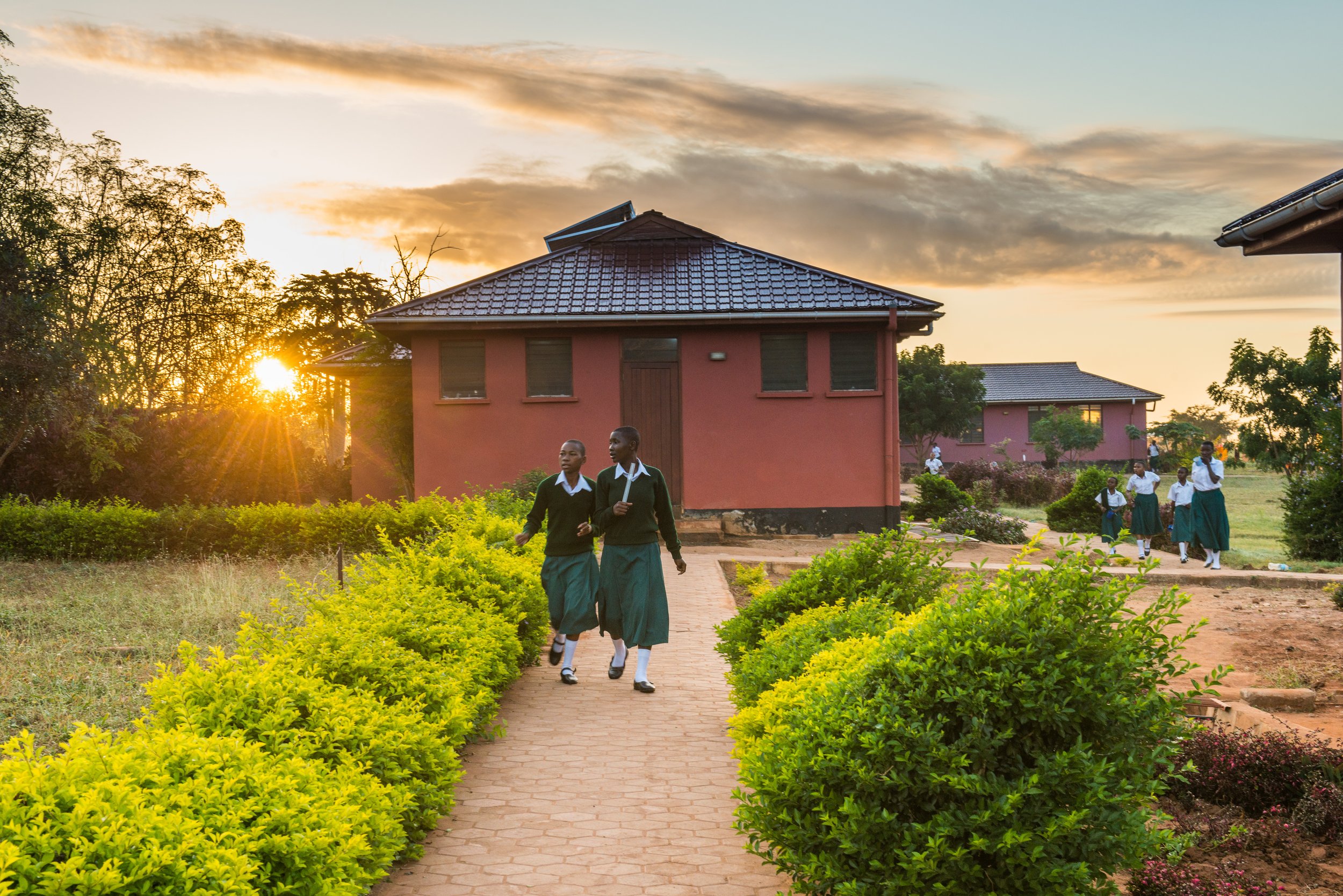
SDG 4: Ensure inclusive and equitable quality education and promote lifelong learning opportunities for all.
SEGA has 16 years of experience working with marginalized Tanzanian girls and has created several programs that address the needs of girls at different stages of their lives. Anchored around a girls’ boarding school serving 290+ girls each year SEGA offers a holistic curriculum in a safe environment.
From 2013-2023, out of 500 SEGA graduates 417 were pursuing higher education degrees, 21 had paying jobs in the formal employment sector, and 49 had their own business.
SDG 5: Achieve gender equality and empower all women and girls.
The SEGA Business Development Program is currently reaching 58 SEGA and Modern Girl graduates. The program teaches graduates how to generate and control their own income through the development of local, profitable, small businesses, and provides young women with training in business skills topics including business plan development and continued mentoring. SEGA also empowers students to become fully engaged in the tourism sector to lead in tourism and hospitality-related enterprises through Hospitality courses and visitor-hosting student programs.
The Modern Girl program reaches 1,824 girls ages 10-25 in 29 communities and will be expanded to 45 communities by 2026 with potential to impact more than 2,000 girls per year.
SDG 13: Take urgent action to combat climate change and its impacts.
Numerous studies have shown that there is a powerful link between educating girls and reducing the negative effects of climate change. Specifically, slowing population growth has been identified as a key factor in slowing climate change. Providing girls with comprehensive sexual reproductive health and rights education - as SEGA does - empowers girls to take charge of their own family planning decisions and gives them the knowledge they need to choose how many children to have and when. Providing girls with climate education also shapes girls into future leaders who can advocate for climate justice, enter green careers, and make environmentally sustainable decisions for their families, communities, and society at large.
Here are some of the ways that SEGA takes action to combat climate change:
SEGA has an environmentally sustainable campus that runs on solar power, as well as a rainwater catchment system that provides water to students, staff, and visitors for part of the year.
Students participate in poultry rearing, which provides protein for school meals.
Students also learn organic gardening; 42% of the produce consumed by students and staff is grown in the SEGA garden.
SEGA operates a composting system, recycles, and aims to reduce the use of single-use plastic.
SEGA students participate in the Tembo Club and learn about the effects of wildlife poaching and how to combat it.
69 SEGA students participated in the 2023 STEM Adventures at SEGA Program and learned about climate change and action.
The SEGA Visitor House is on a 3-year sustainability plan to become a carbon-neutral travel option for all visitors by reducing its carbon footprint in the transport and accommodation sector.
Study Abroad
The Study Abroad Program provides an opportunity for students or graduates to apply for a chance to travel to the United States. SEGA faculty choose two students who demonstrate leadership skills, excellent behavior, a proven affinity for the English language, and openness to new experiences.
The goal of the program is threefold:
Students/graduates will hone their leadership and speaking skills by acting as Ambassadors for Nurturing Minds and SEGA at speaking engagements and events.
Students/graduates will learn about the history, culture, art, education, and food of the United States via travel to different parts of the country.
Nurturing Minds supporters will have an opportunity to learn about our impactful programs by meeting and connecting directly with our students/graduates at events and gatherings.
The environmentally sustainable 30-acre campus has 25 solar-powered buildings, organic gardens, and a renewable water supply that includes a rainwater capture system.
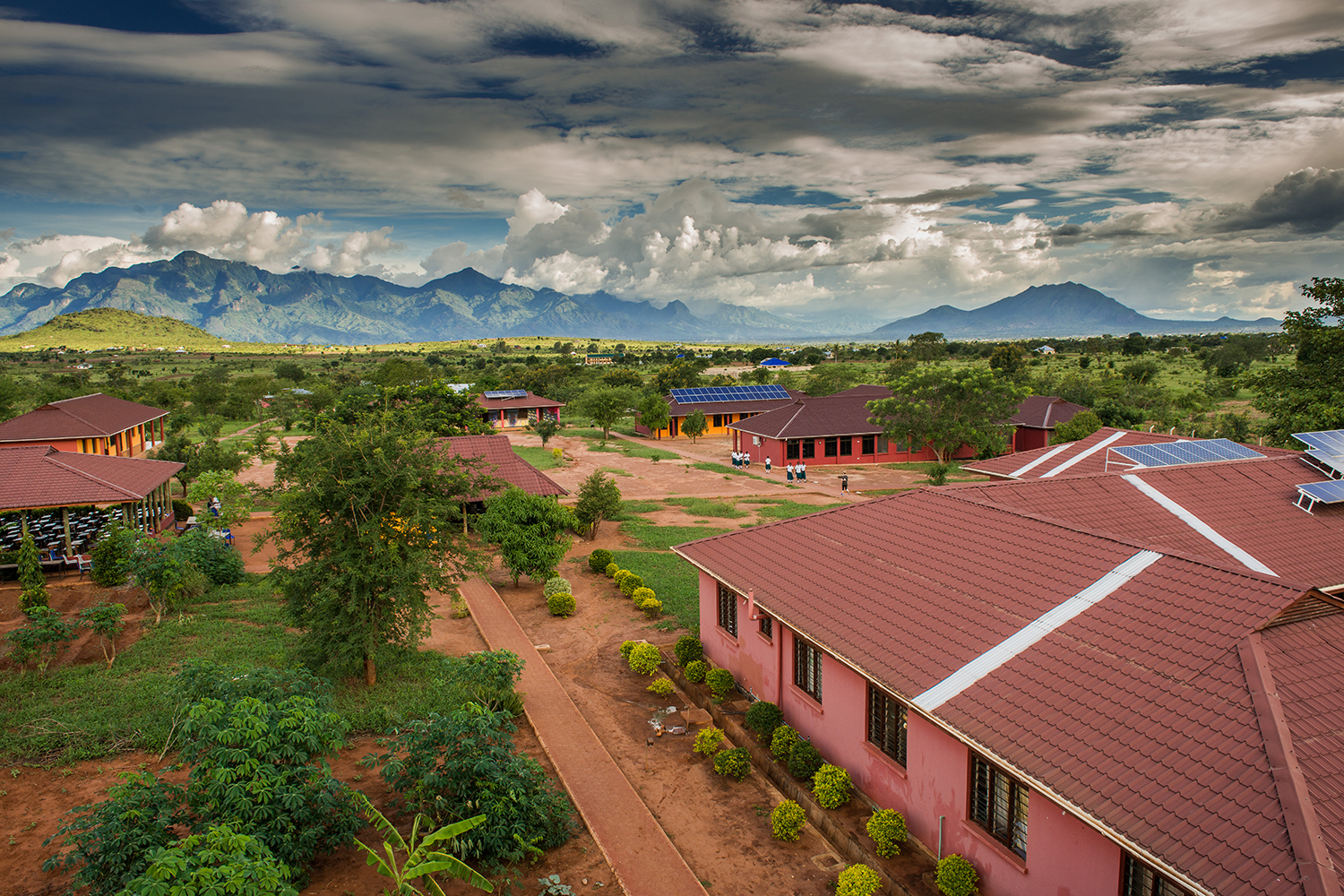
Our Progress











